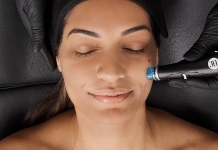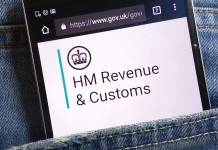Changes to COVID laws & how they affect you & your business

Changes to the way that we live with COVID are set to come into force, with the devolved nations of England, Scotland, Wales and Northern Ireland announcing how and when restrictions will come to an end.
The relevant changes to you and your business depend on which area of the UK you live in, and include the end of mandatory face coverings, self isolation rules, free testing and financial assistance.
Here we round up the changes that have been announced so far. This document will be updated as and when new announcements are made.
England
All remaining domestic restrictions in England are set to end. Key dates and how this affects you are as follows:
Thursday 27th January: The wearing of mandatory face coverings in salons and spas, and during close contact services, ends. The government has advised that individuals should use their judgement on the wearing of a face covering in enclosed or crowded spaces, but this is personal choice.
Monday 21st February: Guidance for staff and students in educational settings to undertake twice weekly asymptomatic testing is removed.
Thursday 24th February: The legal requirement to self isolate after receiving a positive COVID test ends. However, government advice is for adults and children who test positive to stay at home and avoid close contact with other people. After five days, you may take a Lateral Flow Test and if you receive two continuous days' negative tests and do not have a temperature, you can safely return to your regular routine.
Fully vaccinated close contacts and those under the age of 18 will no longer need to test daily for seven days.
Those who are not fully vaccinated will no longer need to self isolate if a close contact tests positive for COVID-19.
If you are an employer, you should ensure that your staff are aware of your company's sickness policy and how this affects their pay.
Thursday 24th March: COVID-19 provisions within Statutory Sick Pay (SSP) and Employment and Support Allowance (ESA) regulations will end.
Find out more about ESA allowance.
If you or your staff test positive with COVID-19, you/they may still be eligible to SSP subject to the normal conditions of entitlement.
Find out more about SSP.
Friday 1st April: Guidance on ongoing steps that people should take to minimise contact with other people will be set out by the UK government.
Free universal symptomatic and asymptomatic COVID testing for the general public in England will end. COVID tests will be available to purchase through the private market, e.g. pharmacies.
Locations that are required to follow current guidance on domestic voluntary COVID-status certification will no longer need to implement NHS COVID Pass regulations.
Existing ‘Working Safely' guidance will be replaced with new public health guidance to ensure that employees' needs are considered.
The requirement for every employer to consider COVID-19 in their health and safety risk assessments will be removed.
Read the full Covid-19 Response: Living with Covid document relevant to England in full.
Scotland
The legal requirement to wear a face covering in all settings, including salons and during close contact services, remains. This is due to be reviewed on 29th March 2022.
Key dates on when Scotland's remaining domestic legal restrictions will end and how this affects you are as follows:
Monday 28th February: Vaccine certification will no longer be legally required for businesses that have previously legally required them.
Monday 21st March: Businesses must take reasonably practicable measures set out in the guidance with regards to COVID-19.
The collecting of client details for the purposes of contract tracing will end as a legal requirement.
Access to lateral flow and PCR tests will continue to be free of charge; a detailed transition plan on the future of the Test & Protect programme is set to be published in March.
If you/your staff/your clients test positive for COVID-19, you must continue to isolate; changes to the length of time self-isolation is necessary is to be considered on an ongoing basis.
Read Scotland's Strategic Framework Update in full.
Wales
Wales has announced it may lift all remaining COVID-19 restrictions on Monday 28th March, subject to levels of the virus, including the wearing of face coverings. Key dates so far:
Friday 18th February: Individuals do not need to prove their vaccination status using the domestic COVID pass or lateral flow test to gain entry to certain venues.
Businesses and employers must continue to undertake a bespoke COVID-19 risk assessments to minimise exposure to the virus and its spread amongst staff and clients.
Monday 28th February: Face coverings are only mandatory in retail, public transport and health and care settings.
Self isolation and testing rules are still in place. Anyone who has COVID-19 symptoms must legally self-isolate and take a PCR test. If positive, you should self-isolate for five days, and after which you may take a lateral flow test. If receiving two consecutive days' negative test result (e.g. days 5 and 6), you may leave isolation. You must continue to test using LFTs until day 10 until you receive two days' negative results.
Close contacts of someone who has tested negative must take daily LFT tests for 10 days since your last contact with the person (if you have been vaccinated), you do not need to self-isolate unless the test result is positive. If you, a member of staff or client is unvaccinated, you must self-isolate for 10 days, and take LFT tests on days two and eight regardless of whether COVID-19 symptoms are showing.
Monday 28th March: Face coverings will no longer be mandatory in any setting, including salons, however the wearing of them will be recommended. Subject to confirmation.
Northern Ireland
Details of when Northern Ireland may lift COVID-19 legal restrictions have yet to be announced.
15th February: Beauty and hair business, salons, barbershops, spas and mobile services in Northern Ireland may operate without restrictions.
The wearing a face covering is still strongly recommended when using indoor areas where you come into contact with people you do not usually meet.
However, Northern Ireland-wide legal restrictions do still apply, including taking a PCR test and self isolating if testing positive. PCR and rapid lateral flow test kits are available free of charge.
Updated: 15th March 2022

-13546.png)






